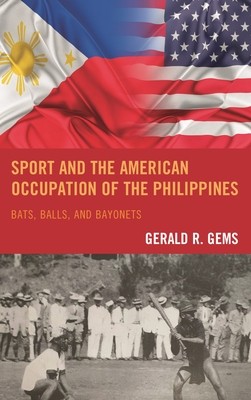
- We will send in 10–14 business days.
- Author: Gerald R Gems
- Publisher: Lexington Books
- ISBN-10: 1498536654
- ISBN-13: 9781498536653
- Format: 15.8 x 22.9 x 2 cm, hardcover
- Language: English
- SAVE -10% with code: EXTRA
Sport and the American Occupation of the Philippines (e-book) (used book) | bookbook.eu
Reviews
Description
This interdisciplinary case study invokes historical, sociological, and anthropological means to examine the ascendance of the United States to a world power in its first imperial venture. In the aftermath of the Spanish-American War of 1898 the U.S. acquired and occupied the Philippine Islands for nearly a half century in an attempt to install a democratic form of government, a capitalist economy, the Protestant religion, and a particular value system. Sport became a primary means to achieve such goals, fostered initially by the military, and then widely promoted in the schools and the YMCA. Competitive programs, including international athletic spectacles, channeled Filipino nationalism against Asian rivals rather than the American occupiers as guerrilla warfare ensued in the islands. The strategies learned in the Philippines, now known as "soft power" remain prominent factors in current American foreign policy.
EXTRA 10 % discount with code: EXTRA
The promotion ends in 20d.09:30:32
The discount code is valid when purchasing from 10 €. Discounts do not stack.
- Author: Gerald R Gems
- Publisher: Lexington Books
- ISBN-10: 1498536654
- ISBN-13: 9781498536653
- Format: 15.8 x 22.9 x 2 cm, hardcover
- Language: English English
This interdisciplinary case study invokes historical, sociological, and anthropological means to examine the ascendance of the United States to a world power in its first imperial venture. In the aftermath of the Spanish-American War of 1898 the U.S. acquired and occupied the Philippine Islands for nearly a half century in an attempt to install a democratic form of government, a capitalist economy, the Protestant religion, and a particular value system. Sport became a primary means to achieve such goals, fostered initially by the military, and then widely promoted in the schools and the YMCA. Competitive programs, including international athletic spectacles, channeled Filipino nationalism against Asian rivals rather than the American occupiers as guerrilla warfare ensued in the islands. The strategies learned in the Philippines, now known as "soft power" remain prominent factors in current American foreign policy.


Reviews